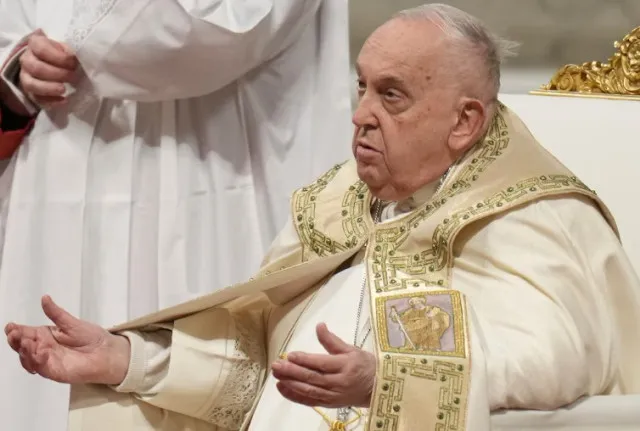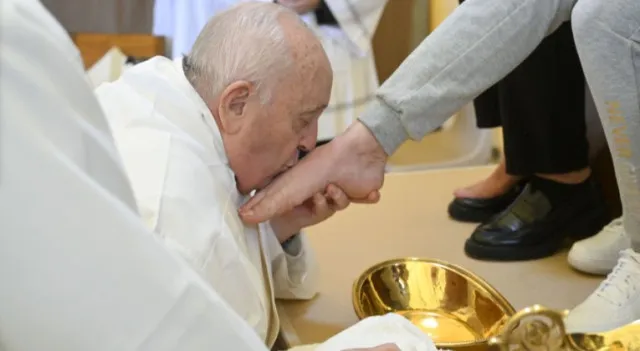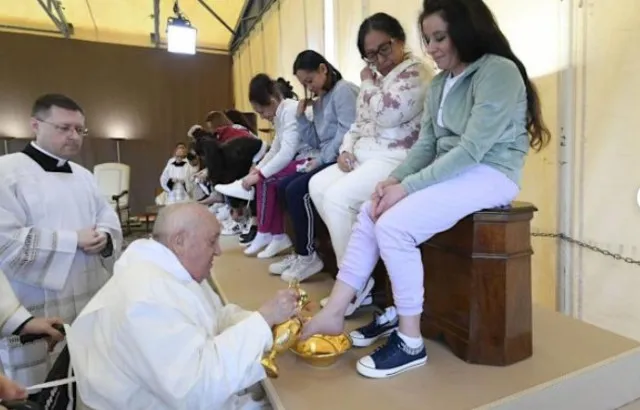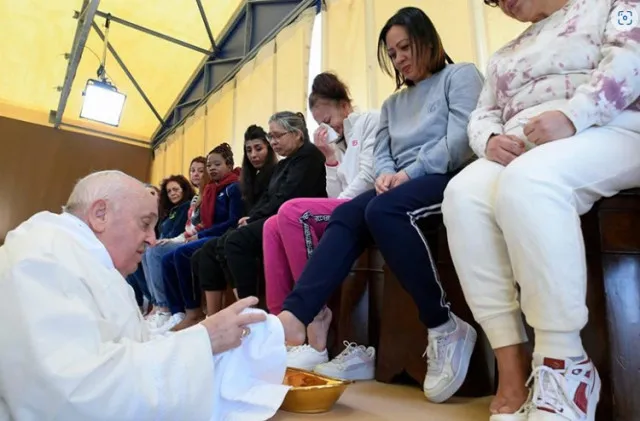Pope Francis broke tradition by washing and kissing prisoners’ feet, emphasizing humility before his death.
Pope Francis, known for his compassionate leadership, made significant changes during his time as the head of the Catholic Church.
One of the most notable practices he embraced was the washing of feet.
This act symbolizes humility and service, reflecting the teachings of Jesus.
Over the years, he washed the feet of various individuals, including prisoners, refugees, and those with disabilities.

Table of Contents
TogglePope Francis broke major tradition as he washed and kissed women’s feet before passing
In a major shift from tradition, Pope Francis started including women in the foot washing ceremony.
Last year, he made headlines for washing the feet of 12 women at a prison in Rome.
This was the first time he focused solely on women during the Maundy Thursday service, which takes place the day before Good Friday.

Previously, his predecessor, Pope Benedict XVI, only washed the feet of men, later choosing to include only priests.
Pope Francis’ decision to include women highlights his progressive approach and commitment to equality.
He has often emphasized the importance of compassion and inclusion in the Church.
The significance of foot washing
Foot washing is a tradition that dates back to early Christianity.
It is meant to imitate Jesus, who washed the feet of his disciples during the Last Supper.
This act of love and service demonstrates humility and care for others.
According to sources, Pope Francis changed the Roman Missal in 2016 to allow the washing of women’s feet, further broadening the scope of this important ritual.

In 2016, he performed the foot washing for migrant men and women of different faiths at an asylum center outside Rome.
This act not only reflects the spirit of the tradition but also emphasizes his commitment to helping those in need.
“In several European countries the monarchs or members of the royal family washed the feet of poor people and gave them gifts on Maundy Thursday.
The royal practice was continued for a time in England after the Reformation but ended in the Church of England in 1754.”
Global reflection on Pope Francis’ leadership
Following the announcement of Pope Francis’ death on Easter Monday, people around the world began to reflect on his contributions as the leader of the Catholic Church.
Appointed in 2013, he was known for his progressive reforms and willingness to address controversial issues.
His leadership style resonated with many, making him a beloved figure to millions.
Pope Francis often spoke about the importance of mercy, love, and acceptance within the Church.
His actions, such as washing the feet of marginalized groups, demonstrated his commitment to these values.
He encouraged followers to act with kindness and compassion, both within and outside the Church.

The next pope’s selection process begins now.
As the world mourns Pope Francis, questions arise about who will succeed him.
The process of selecting a new pope takes place during a papal conclave, which typically lasts between 15 and 20 days.
The College of Cardinals, a group of over 200 senior cardinals, will vote until a candidate receives a two-thirds majority.
While there is no official age limit for the role, only men can be appointed as pope.
Some potential candidates include Pietro Parolin, the Vatican’s secretary of state, who has been close to Francis since the beginning of his papacy.
At 70 years old, he is seen as a reliable choice.
Another contender is Luis Antonio Tagle from the Philippines. At 67, he is highly regarded and could make history as the first Asian pope.
Peter Turkson from Ghana, who is 76, is also considered a possible successor. If elected, he would be the first Black pope in centuries.